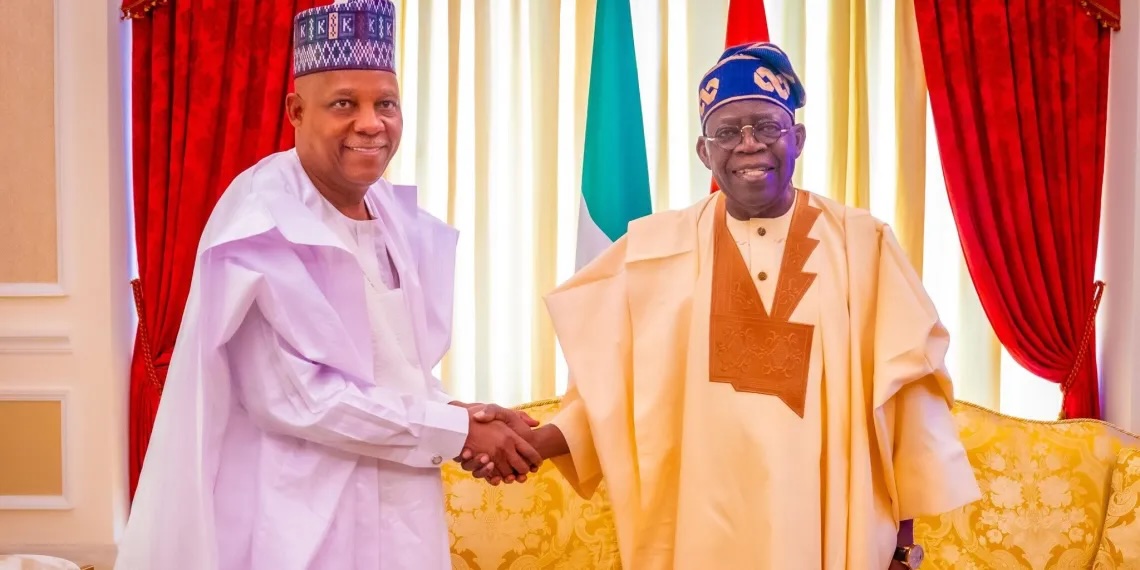
A PEEP into the speeches by the selected ‘statesmen’ in the room shows unity, cooperation, intransigence and confidence. You can prove that by the school of off-chord claps and teeth-gritting approval grins that followed every bold-faced sophistry spewed to humanise the crippled monument decked behind the top table at the event. While the cheeky chicken farmer, Olusegun Obasanjo, 88 started the spree with words of solidarity and courage for brother IBB, shrill-voiced fugitive, Yakubu Gowon, 90 provided an history made of pomade to dress the celebrant as a saint from birth.
Childish and inane Goodluck Jonathan, 67 provided the comic relief while Abdulsalami Abubakar, 82, absentee Mohammadu Buhari, 82 and President Bola Tinubu, 72 were pacific and deliberately collaborative like marooned sailors.
But not against the grain was the brash and uninoculated multibillionaire garage “garagean” boy, Arthur Eze, 76, who broke the calabash of measure and decency by confirming the form and content of the drama of plundering of the nation. This he did through his “Babangida made me what I am today” speech. And the clap was thunderous!
So, what has the book said? By its apt chronicling of Babangida’s own admittance to have masterminded and participated in several coup plots to undermine the sovereignty of Nigeria, the book provided a well laid tapestry for chronicling the character trait of the evil, mindless and selfish leadership gang killing Nigeria. The publisher’s note at the beginning of the essay pages of the book, in a bid to paint him as an hero, reminded us, in flowery language, of how Babangida, its protagonist, negotiated an agreement with the International Monetary Fund (IMF) and accepted World Bank loans leading to the devaluation of the Naira and the Nigerian life worth.
It presented to us how the Minna boy embarked on an endless and worthless transition to civil rule, annulled June 12, denied MKO Abiola a victory he truly won, foisted a contraption on the nation as a punishment for denying him his way and worsted the worth of Nigeria both living and yet unborn.
Without doubt, A journey in Service by Ibrahim Babangida, GCFR, 83 is a masterly artistry, carefully put together by the best narrative managers that money can buy, to enrich discourse about the chequered history of our nation-state. Apart from provoking rich discussions and worthwhile debates, it, by default, provides a binary oppositional narrative against the known realities of our national experience.
Indeed the point could be made again that the agenda to manage a proposal for restitution and restoration remains the hidden curriculum of the narrative.
Anyone who fails to see this does not understand the ways and manners of grief. The pains, gloom, regret, loneliness and ostracism tormenting the protagonist’s soul and spirit can only be imagined. At the easiest say, it can only be compared to the grief of brother Judas Iscariot in the Jewish tale of the Bible. Unfortunately, the technology and civilisation of those days did not afford the brilliant ‘accountant’ son of Iscariot the luxury of an option better than suicide. Ibrahim Babangida understands the options and he can afford it. Besides, the days are different, so also is the society. It seems now a society of Bala-blu, blu-blu, Bulaba! It is definitely a society of selective amnesia and convenient reaction.
In conclusion, reading chapters 6,7,8,10 and 13 of A journey.. in the context of the topical chapter 12 amplifies the eloquent voice of the book itself. It is a simple message that retribution is real and that it is what it is. It speaks loudly that every vile against humanity shall be surcharged and paid for in full, if not openly but silently, if not when we are strong, but when we are frail, if not to men but certainly to God, if not on earth but certainly in the after-life.
The expertise of the Babangida enterprise chronicled in the document introduces us to the psychology of opportunism and the mechanics of Karma. It warns that not stroke, nor disability, nor impotence, nor wealth ill-gotten flays the soul more than the trials and cries of a conscience deluded.
Of what the reader/audience is/should say from the IBB book, Omoyele Sowore’s thesis, captured in his recent words is enough.
Concluded.
Adebayo, immediate past Chairman, Ondo State Radiovision Corporation writes from Manitoba, Canada.






